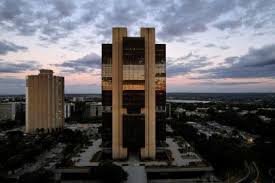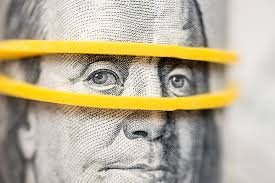
Investments: Brazilian Companies Scale Back 2025 Plans Amid Economic Uncertainty

Investments: Brazilian Companies Scale Back 2025 Plans Amid Economic Uncertainty
A growing sense of uncertainty and a lack of visibility regarding the economic landscape, combined with mounting debt pressure due to rising interest rates, have led Brazilian companies to announce investment plans for 2025 that are in line with or below those seen in 2024.
The end of last year was already marked by the need for greater caution in cash disbursements, as shown by a survey conducted by Valor based on the annual financial statements of 40 publicly traded companies released in recent weeks. If this slowdown persists throughout 2025, it would mark a further decline from an already weaker base, particularly in the second half.
The completion of previous investment cycles and the decision by some groups to wait for recently completed projects to mature also contribute to this trend.
According to data gathered from the 2024 financial results, the ratio of capital expenditures (capex) to net revenue fell to 9.05% last year, down from 10.44% in 2023 and 11.33% in 2022.
Other figures indicate a business recovery, with companies improving their results, increasing sales, and posting higher profits in recent quarters compared to the previous year. There was indeed growth in a period when Brazil’s GDP expanded by 3.4% in 2024, along with a boost in employment and income.
However, investment activity lost momentum, weakening the relationship between key indicators. Net revenue increased from R$844.4 billion in 2022 to R$875.3 billion in 2023, reaching R$962.9 billion in 2024—an annual nominal growth of 10%.
Meanwhile, capex spending dropped from R$95.7 billion in 2022 to R$91.4 billion in 2023, and then further to R$87.2 billion in 2024—a 4.6% decline year-over-year. Quarterly data from last year shows that the slowdown was most pronounced between the third and fourth quarters, particularly in specific sectors, as the economy began showing signs of cooling.
GDP grew by just 0.2% from October to December, falling short of the median forecast of 0.4% from 72 financial institutions surveyed by Valor.
Breaking down investments by sector, consumer and service groups—more reliant on domestic demand and higher-interest credit—slowed their spending, dragging down the overall investment base. Export-oriented and infrastructure groups, such as those in transportation, increased their investments compared to 2023. However, some have already signaled more cautious plans for 2025.
“The mood has changed a lot—not just in financial markets, but among business leaders across different sectors, especially after September and October,” said André Pimentel, a partner at consulting firm Performa Partners, which focuses on mid-sized and large companies in the services, consumer, and agribusiness sectors.
Mr. Pimentel noted that mixed economic signals—such as available income, debt levels, and default rates—are complicating decision-making. “And now, it’s not just an issue for companies reliant on local demand but also for export-oriented groups, given the uncertainty surrounding tariffs under the Trump administration. There’s a lot of noise all at once, and short-term visibility is quite low,” he said.
Privately, in conversations with investors and banks, business leaders have raised concerns about economic policy, particularly following the perception, since late 2024, that the government has adopted a looser fiscal stance. There are also fears that more unorthodox measures could be introduced to stimulate income and consumption, despite denials from government ministers.
One executive, whose retail company recently announced lower investment projections for 2025, pointed to a lack of stability and predictability. “At times like this, it’s hard to take bold risks. Projects that I would have pushed to the board in November, I’ve decided to postpone for discussion in the second half of the year,” he said.
Business confidence indices in February hit their lowest levels since May 2024, according to data released by FGV Ibre. For the second consecutive month, declines were posted across all analyzed sectors—industry, services, retail, and construction.
Aloisio Campelo Jr., a researcher at FGV Ibre, noted a continued decline in optimism regarding future business conditions, which plays a crucial role in investment decisions.
“The indicator reflecting business leaders’ expectations for the next six months has worsened. This index stood at 96.8 points in October but dropped to 93.5 points in February—the lowest level in nine months,” he said.
Valor analyzed investment data from 40 non-financial companies that had released their financial statements and market projections as of last Friday (7). Banks, insurance companies, as well as Petrobras and Vale, were excluded to maintain the focus on industry, services, and retail. Asset acquisition expenditures were also not considered in the analysis.
A few weeks ago, Gerdau’s executive vice president of finance, Rafael Japur, told analysts that the company invested R$6.2 billion in 2024, with a projected R$6 billion for this year, keeping expenditures relatively flat. In 2023, investments had totaled R$5.7 billion.
This year, for instance, there will be fewer expenditures related to maintenance stoppages. Investments in the company’s core business, steelmaking, will decrease from R$6.2 billion in 2024 to R$5.5 billion in 2025, Mr. Japur said in a conference call. An additional R$400 million to R$450 million will be allocated to a solar park in Goiás.
Mr. Japur also highlighted the importance of maintaining a strong investment portfolio in the current environment of heightened trade protectionism, with countries becoming more assertive in defending their interests. “But we are reaching a point where we will be very selective about new projects, and investment decisions will fundamentally depend on government policies,” he said.
“If there are no concrete changes, we will likely approve fewer investments in 2025,” he added. The company’s cautious stance is partly a reaction to what its leadership has described as a “flood” of Chinese steel entering Brazil at unfairly low prices, prompting calls for stronger government intervention.
Gerdau declined to comment when contacted.
Investment plans for 2025
Among the companies analyzed, eight have announced investment plans for 2025. Companies are not required to disclose this information in their financial statements.
Of these, five are forecasting a decline in investments compared to 2024—Suzano, Aura Minerals, Gerdau, Assaí, and Carrefour. Klabin expects stability, while Usiminas and Rumo project an increase.
Companies have cited various reasons for adjusting their investment plans, including the need to boost cash flow, cut costs, and reduce high or above-target debt-to-EBITDA ratios. Klabin, Assaí, and Carrefour have emphasized these priorities.
Klabin, a producer of packaging paper, invested R$3.3 billion in 2024, and the figure is expected to remain unchanged this year. In 2023, investments were higher, at R$4.3 billion, driven by record-breaking spending on large projects. The company has strong domestic paper sales.
For the next two years, Klabin’s focus will be on generating cash to reduce its debt, with all free cash flow over the next 18 to 24 months directed toward lowering financial leverage, the company’s management said in February.
Klabin has felt the impact of the Brazilian real’s depreciation against the U.S. dollar, which surged 14% in the fourth quarter, affecting both its debt and derivative operations. The company is also looking to “monetize surplus land” by selling off properties to generate cash. “Any discussions about new investments will only take place starting in 2027,” Klabin’s CEO, Cristiano Teixeira, told Valor in February.
The company’s net debt-to-EBITDA ratio, a key measure of leverage, rose to 3.9 times in 2024, up from 3.3 times in 2023. Klabin said it has no further comments on its investment plans at this time.
At Suzano, the board approved a R$12.4 billion investment budget for 2025. If the company adheres to this figure, it would be lower than the average annual spending of R$17.3 billion over the past three years, a period marked by accelerated project investments. From October to December, Suzano’s capex fell 43% compared to the third quarter.
When contacted, Suzano explained that the lower capex budget for 2025 is primarily due to reduced spending on its new pulp mill in Mato Grosso do Sul and lower investments in land and forest assets, as outlined in a material fact notice in December.
In their public statements, the companies reviewed did not explicitly link their budget decisions to an economic slowdown, although domestic market conditions do factor into investment plans.
Among companies focused on domestic consumption, inflation, exchange rate fluctuations, and interest rates weigh heavily on budget projections. Additionally, business restructuring efforts and comparisons to previous years, which included acquisitions—such as those by Assaí and Carrefour—have contributed to lower investment projections for 2025.
This article was translated from Valor Econômico using an artificial intelligence tool under the supervision of the Valor International editorial team to ensure accuracy, clarity, and adherence to our editorial standards.
Compartilhar:









